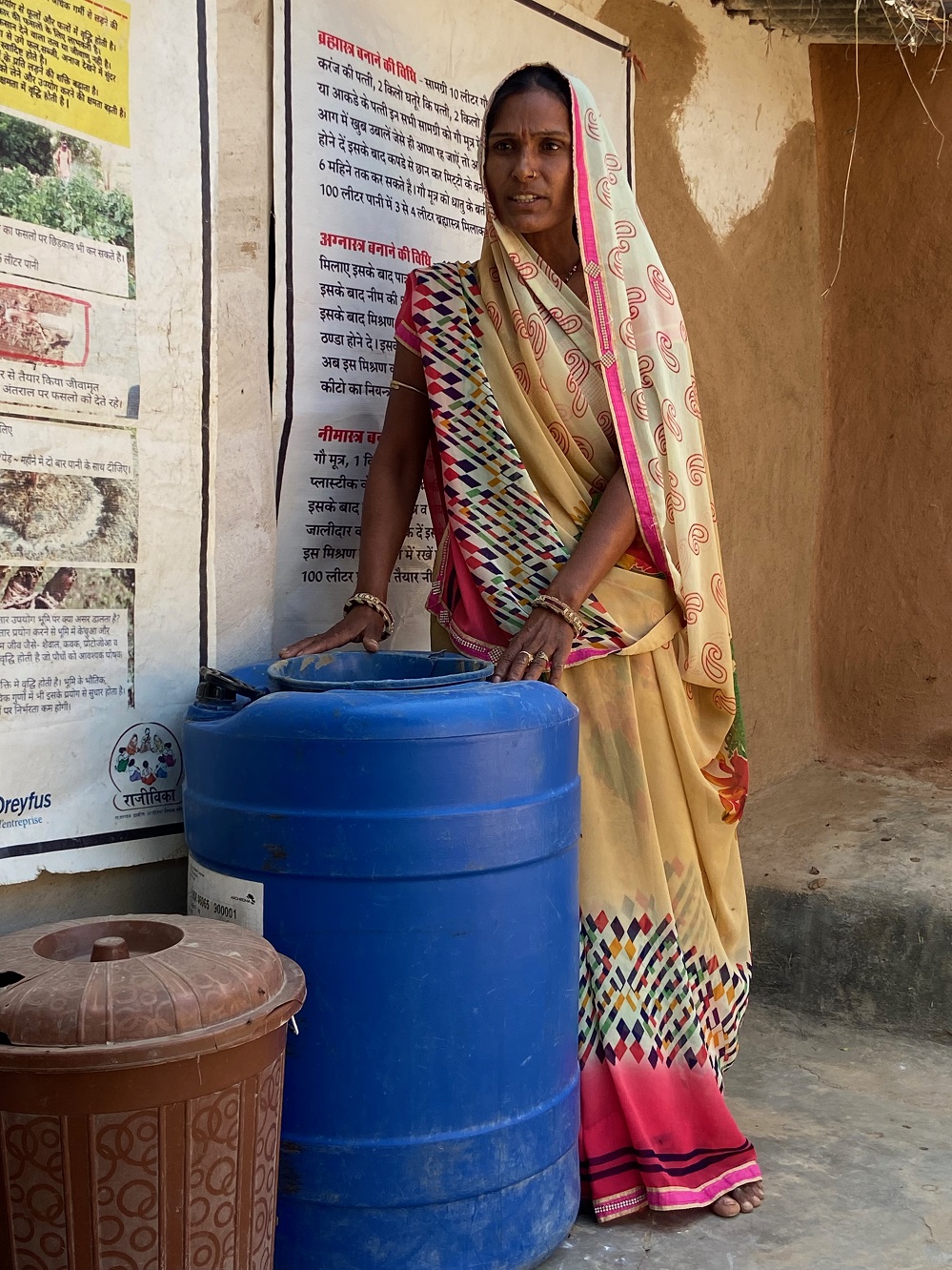The success of ‘Empowering Women Farmers in Rajasthan’ project has led to it being extended till 2024 with the aim of empowering another 6,000 women farmers from 100 villages across the region.
In October this year, amidst the revelry of the Diwali season, I visited the Tonk District in the semi-arid eastern plains of Rajasthan. Here, I had the pleasure of meeting and interacting with a bunch of confident women, who had pulled themselves and their families from the depths of poverty through sheer gumption and a worthy helping hand. Each one of these women was an agri-entrepreneur in her own right and held sway over our conversation with a clear understanding of concepts that would seem alien to most of us.

The group I met with, was one of many such which are benefitting from private sector funding led by the Louis Dreyfus Foundation and the Centre for microFinance, in conjunction with government schemes like the National Rural Livelihood Mission which encourages the formation of women-led self-help groups. I was astounded to see how the adoption of a few simple measures had enabled the women of these villages to take the lead in farming practices, ushering in prosperity for their households and becoming empowered in the process.
Ramgani, a resident of one of the beneficiary villages, was the first woman I spoke to. Clad in a man’s shirt done to her size paired with a colourful cotton lehenga and signature colourful dupatta covering her head for modesty and protection from the harsh sun, she cut a striking figure. In a stark departure from the prevalent idea of shy, diminutive village women, she was the very epitome of confidence as she told me about her successful farming journey over the last couple of years. Plagued with the problems of living on arid desert land, Ramgani’s family as well as those of her neighbours, have relied on sorghum, sesame and groundnuts as their Kharif crops, and wheat and mustard as their Rabi crops of choice for generations. Yet, it was proving difficult for them to subsist on poor crop yields in recent years.
This is where external help came in, turning the tables in favour of the villagers for good. The Louis Dreyfus Foundation, which is under the wing of the Louis Dreyfus Company, along with the Centre for microFinance launched an ‘Empowering Women Farmers in Rajasthan’ project in 2020 to enhance the food security and cash incomes of women smallholder farmers in Rajasthan. The farming region is known for its low productivity, limited rainfall, and high incidence of poverty. Hence, this project aimed to help beneficiaries diversify their sources of income by producing different food crops and vegetables while gaining knowledge of the latest practices in agricultural technology, natural resources management as well as the principles of micro-finance. Other important aspects of the project included training on the methods to adopt pre-sowing, post-sowing, for the management of pests and for organic farming – which are necessary skills to encourage a successful harvest.
As I surveyed the neatly laid out fields of some of these women, I spoke to them and their associated project heads to better understand the results of their efforts over the past couple of years. I was pleasantly surprised to learn that with these project interventions, local farming communities saw a 41 percent improvement in their income derived from agriculture, compared to baseline values – remarkable progress for such a short period of time. So far, 3,717 farmers have received training and adopted good agricultural practices. The success of the program has led to it being extended till 2024 with the aim of empowering another 6,000 women farmers from 100 villages across the region, through crop diversification, improved livestock production, and water use efficiency. 450 farmer groups will also be trained on financial literacy to allow them to apply for government financing through varied schemes. These measures were noticed, and the initiative was awarded the 2021 Sustainability Agriculture Award in the Outstanding Sustainable Farmer Income Enhancement Program category – a recognition established by the Indian Chambers of Commerce and Industry (FICCI).
Touting numbers is one thing, but the best evidence of the success of these programs were the smiles and confident overtures of the women farmers. Ramgani benefitted through the conversion of just one bigha (2500 sq yards out of her total 7500 sq yards) of farmland to growing vegetables like peas and red chilis on a rotational basis. Sugna Devi from the same village also did really well. Devastated by the untimely death of her husband, she began using the methodologies taught by the project heads to make her own organic manure, which is better for the soil, is a sustainable practice that is good for the environment, saves money and allows her to earn money by selling it to others. This combined with the earnings from her farm enabled her to live comfortably, educate her children and even purchase the first electric grinder in the entire village. Drip irrigation also benefitted many women, and Lali and Savitri Devi were proud owners of a pond which was built on their land by the project team, allowing them to pull water from it to irrigate their land and cultivate mustard and chickpeas throughout the year.
As I rode back to Jaipur after visiting three different villages in Tonk and hearing the testimony of their female residents up close, I was content in the knowledge that this set of enterprising women, supported by able organizations, are the beacons of hope we need for the future of humanity and our planet.
Noor Anand Chawla pens lifestyle articles for various publications and her blog www.nooranandchawla.com.

